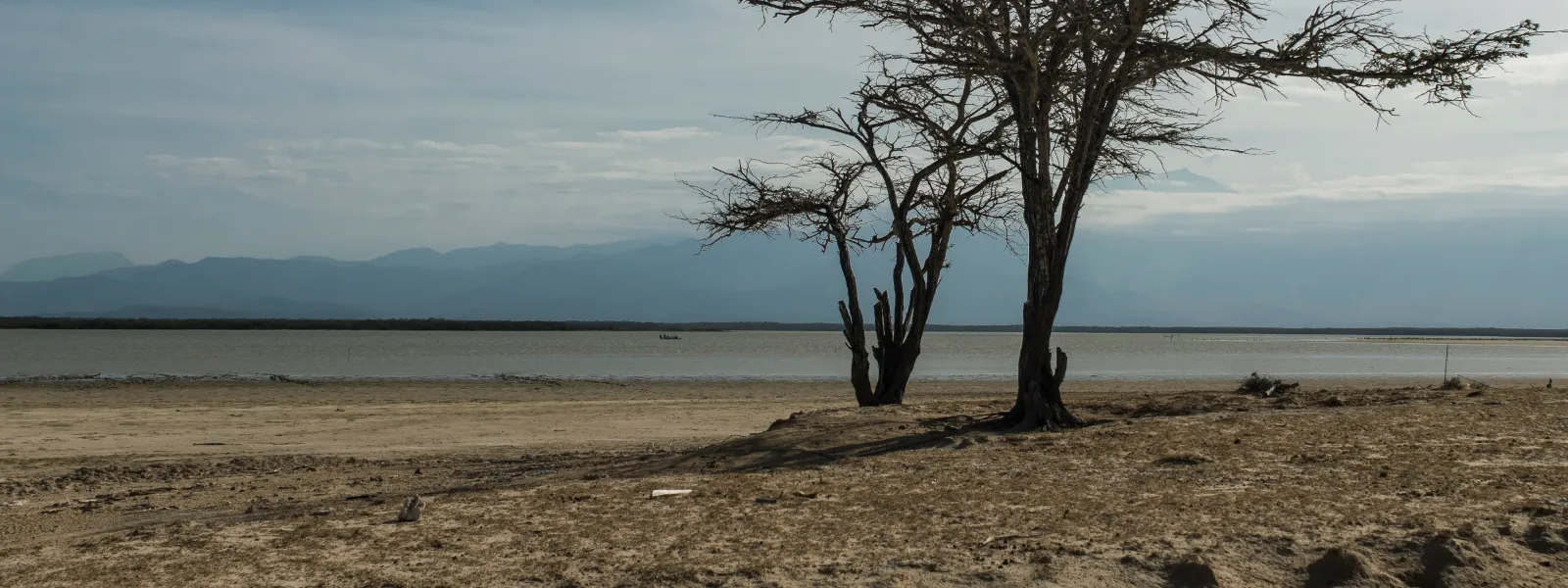
Swiss OECD Point of Contact calls on Glencore to comply with due diligence on coal mine in Colombia
Photo: Felipe Mejia Medina (CC BY-NC-ND 2.0).Switzerland’s National Contact Point (NCP) for the Organization for Economic Cooperation and Development (OECD) recommended that the multinational as the sole owner of the Cerrejón mine in Colombia ensure “its policies and due diligence measures promote responsible business conduct at Cerrejón” in its final statement on the complaint filed against Glencore. The NCP further implored Glencore to maintain a dialogue with NGOs and representatives of the indigenous Wayúu and Afro-Colombian communities affected by the mine's operations.
In January 2021, a coalition of national and international organizations—comprised of GLAN, CAJAR, AIDA, CINEP, Ask! ABColombia and Christian Aid Ireland—filed five complaints with the OECD NCPs in Ireland, the United Kingdom, Switzerland, and Australia to denounce the various detrimental impacts of the Cerrejón mine, operated by Carbones del Cerrejón. The coalition detaile the disastrous impacts on the lives and human rights of the indigenous, Afro-descendant and other rural populations of La Guajira resulting from operation of the Cerrejón mine and Carbones de Cerrejón’s lack of due diligence in its operations, leading to non-compliance with OECD guidelines for multinational companies.
The coalition filed the complaints against ESB (Electricity Supply Board), the Irish state-owned company that buys coal from the Cerrejón mine; CMC (Coal Marketing Company), based in Dublin, Ireland, which markets the coal from Cerrejón, and the multinational mining companies that jointly own Carbones del Cerrejón: BHP, Anglo American and Glencore.
In response to the coalition’s complaints, the Swiss NCP noted that "the Australian and British NCPs will publish, in accordance with their rules of procedure, Final Statements regarding BHP and Anglo American respectively.” The complaints in Ireland are still pending.
The Swiss NCP’s statement did not address the main duty of its mandate—to ensure the implementation of the OECD Guidelines for Multinational Enterprises. Instead, the Swiss NCP statement merely reiterated generic existing duties and did not make substantive recommendations in response to the details or the gravity of the Cerrejón’s human rights abuses and violations documented in the complaint.
The Swiss NCP conducted its review with serious irregularities and asymmetries in its treatment of the parties. The Swiss NCP failed to provide the affected Wayuu indigenous and Afro-descendant communities with access to information about the review or any guarantees of participation in the review. These asymmetries and irregularities resulted in Glencore’s impunity for the serious human rights violations committed by the mining operations of Carbones del Cerrejón. Our coalition eventually chose to withdraw from the process in protest of the Swiss NCP’s disfavorable treatment of the coalition and favorable treatment of Glencore.
Our experience with the Swiss NCP highlights how the complex web and architecture of impunity and asymmetry in international processes favors multinational companies, resulting in abysmal gaps in justice for victims of multinational companies’ human rights abuses and violations.
Given the enormity of the Swiss NCP’s incompetence, negligence, and inconsistency in its functions, we reject the NCP’s final statement which suggests that GLAN and the coalition members are to blame for failure of the mediation process. In this statement, the NCP ignores the impacts of its own deficiencies on the mediation process. The way the Swiss NCP in structured the mediation process placed a greater burden on the complainant’s ability to access and participate in the mechanism than on Glencore.
Despite these disadvantages, the coalition participated with the utmost diligence and good faith throughout the entire procedure.
The Swiss NCP’s incompetence in this instance is part of its pattern of favoritism of multinationals.
For example, the Swiss NCP mishandled the complaint against Sygenta for its harm to farmers in India. The NCP's improper practices led Marcos Orellana, UN Special Rapporteur on Toxic Substances and Human Rights, to state that the Swiss NCP set “a bad precedent that underlines the weaknesses of the National Contact Points for the OECD Guidelines.”
Because the Swiss legal accountability mechanisms do so little to regulate the conduct of Glencore—a company with a history of corruption and serious allegations of human rights abuses and violations associated with its global activities—the Swiss government is implicated in Glencore’s abuses. Although the OECD guidelines are voluntary for companies, countries that adhere to guidelines make a binding commitment to implement them.
The Swiss NCP's inadequate handling of this complaint and the Swiss government’s failure to comply with its functions and the obligations relating to respect for human rights, leads us to question degree of the Swiss government’s complicity in these abuses and how this complicity creates an environment of tolerance for corporate violations and abuses. What is clear is that the OCED’s voluntary mechanism has become a way to mask corporate violations and facilitate corporate impunity.
Although the Swiss government does not grant real and effective access to justice for victims of Glencore’s violations as an investor in Carbones del Cerrejón, Glencore is able make use of its guarantees as an investor—as established in the Foreign Investment Protection Agreement between Colombia and Switzerland—to sue the Colombian government over a court ruling that protected the human rights of the Wayuu people from Carbones del Cerrejón’s actions. In the face of this asymmetry in justice between the parties, it is concerning that Colombia choses to maintain this agreement.
We reiterate the inadequacy of non-judicial mechanisms to hold multinational corporations accountable. Cases such as this highlight the need for binding due diligence legislation and a treaty regarding companies and human rights that includes real accountability for abuses resulting from seemingly unlimited transnational corporate power.
Signed:
Interamerican Association for Environmental Defense (AIDA)
José Alvear Restrepo Lawyers' Collective (CAJAR)
Center for Research and Popular Education (CINEP)
Christian Aid
ASK
ABColombia
Global Legal Action Network (GLAN)
press contact:
Victor Quintanilla (Mexico), AIDA, [email protected], +525570522107
